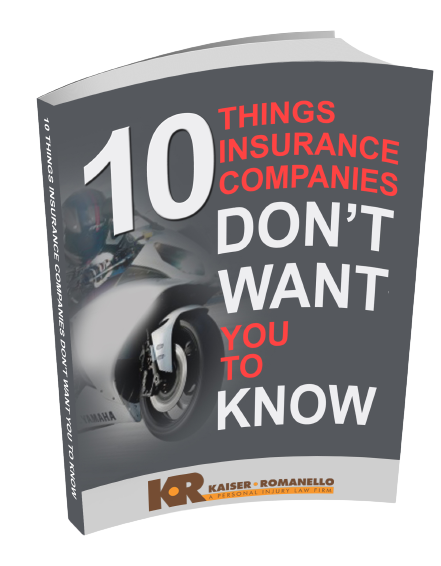News| When an Ambulance Crash Leaves You Injured: Get Legal Help
When an Ambulance Crash Leaves You Injured: Get the Legal…
Fort Lauderdale, a key city in South Florida, experiences heavy traffic on I-95, Broward Boulevard, and the Florida Turnpike. With motor vehicles, commercial trucks, and big rigs sharing the roads, truck crashes are common. A vehicle accident involving a semi-truck can cause serious injuries, medical bills, and financial strain. Insurance companies often undermine injury claims to reduce payouts. Kaiser Romanello’s Fort Lauderdale truck accident attorneys, as experienced personal injury lawyers, protect truck accident victims, securing compensation for medical expenses, lost earning capacity, pain and suffering, and emotional distress through dedicated legal representation.
Truck crashes in Broward County often result from negligence or Federal Motor Carrier Safety Administration (FMCSA) violations. Common causes of truck accidents include:
Our Fort Lauderdale truck accident attorneys investigate, using police reports, black box data, and truck logs to hold liable parties accountable.
Truck accident cases often yield truck accident injuries like:
Commercial vehicles’ size endangers passenger vehicle occupants. Our injury lawyers secure maximum compensation for medical expenses, lost wages, and reduced quality of life.
Liability in a truck accident case is complex. Liable parties may include:
Our Fort Lauderdale truck accident attorneys gather medical records and truck logs to ensure negligent parties face accountability.
If you or a family member suffered in a truck accident in Fort Lauderdale, Miami, or Hollywood, contact Kaiser Romanello’s law firm for a free consultation. Call (844) 877-8679 or fill out our online case evaluation form. No fees unless we win—start your truck accident claim today!
Q: What are common causes of truck accidents in Fort Lauderdale?
A: Driver fatigue, distracted driving, speeding, and mechanical failures, especially on I-95 or the Florida Turnpike.
Q: Why choose Kaiser Romanello’s Fort Lauderdale truck accident attorneys?
A: Our FMCSA expertise and local knowledge ensure strong legal representation.
Q: What if I’m partially at fault in a Fort Lauderdale truck crash?
A: Florida’s comparative fault allows recovery, adjusted for your share. We pursue fair compensation.
Q: What if a loved one dies in a Fort Lauderdale truck accident?
A: We file wrongful death claims for funeral costs and emotional loss.
Q: How does an insurance company handle Fort Lauderdale truck accident claims?
A: They offer low settlements. Our personal injury attorneys negotiate for maximum compensation.
Q: Do I need an injury lawyer for a Fort Lauderdale truck accident?
A: Yes, to navigate complex truck accident cases and counter insurance tactics.
Q: What if trucking companies deny fault in Fort Lauderdale?
A: We gather evidence like black box data to prove liability.
Q: How long does a Fort Lauderdale truck accident case take?
A: It varies, with serious injuries extending timelines. Our legal team keeps you updated.
Q: Do you handle car accidents in Fort Lauderdale?
A: Yes, our law firm manages all motor vehicle crashes, including car accidents.
Q: When should I contact a Fort Lauderdale truck accident lawyer?
A: Immediately, to gather evidence and meet the two-year statute of limitations.
Access local support after a commercial truck accident:
Medical Care:
Broward Health Medical Center: 1600 S Andrews Ave, Fort Lauderdale, FL 33316. Emergency care. Call (954) 355-4400.
Holy Cross Health: 4725 N Federal Hwy, Fort Lauderdale, FL 33308. Injury treatment. Call (954) 771-8000.
Community Support:
Broward County Victim Services: Counseling and financial aid. Call (954) 831-8000 or visit www.broward.org/victimservices.
211 Broward: Mental health and financial support. Call 211 or visit www.211-broward.org.
This information is for general purposes only and not legal advice. Kaiser Romanello Accidents & Injury Lawyers is not responsible for actions taken without consulting our law firm. Each Fort Lauderdale truck accident case is unique, with outcomes depending on crash details, insurance coverage, and Florida law. The statute of limitations is two years for accidents on or after March 24, 2023. Past results don’t guarantee future outcomes. Contact our law firm at (844) 877-8679 for a free consultation.
Kaiser Romanello’s Fort Lauderdale truck accident lawyers reject low settlement offers from the insurance company, fighting for full compensation for medical expenses, property damage, punitive damages, and emotional distress. If negotiations fail, we pursue a truck accident lawsuit for favorable verdicts. Call (844) 877-8679 for justice.
Negligent Security
Ride Share
Car Accident
“Kaiser Romanello changed my life. They are The Dream Team! Could not recommend them anymore! If you want to get the most money for your personal injury claim call Kaiser Romanello today!”

Former client

“l just got off the phone with Mr. Loren Kaiser for a free consultation and he was absolutely amazing. He was extremely helpful, detail oriented and did not add any “rushed” feeling to the phone call. If I have anything substantial to move forward with, I will proudly utilize this law office. Thank you, Mr. Kaiser, for your help, input and advice! It is greatly appreciated.”

Former client

“Steve and his partner are just very knowledgeable, amazing client service, Steve it is the kind of persons who loves what he is doing, he went about and beyond his lawyer responsibilities in my case, they care about you, If you are looking for professionals at the highest levels, use their services. Not only you will be represented by top lawyers, but you feel like part of the family. Thanks for everything, God bless you.”

Former client


When an Ambulance Crash Leaves You Injured: Get the Legal…
Plantation Motel Shooting We Don’t Take “Low” for an Answer!…
When an Ambulance Crash Leaves You Injured: Get the Legal…
Plantation Motel Shooting We Don’t Take “Low” for an Answer!…